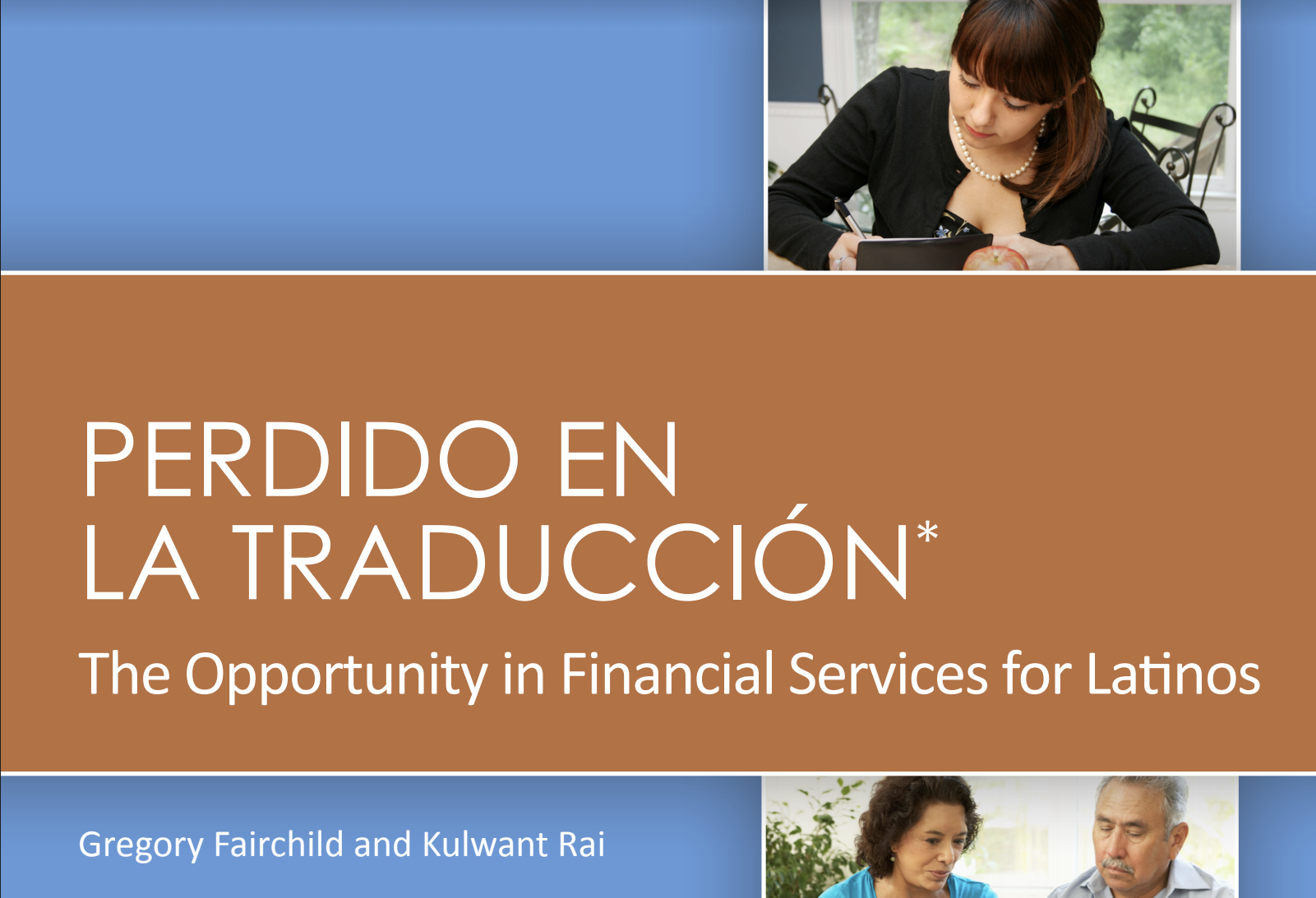Durham, NC – The University of Virginia Darden School of Business and its Tayloe Murphy Center released the findings of a major study called “Perdido En La Traducción: The Opportunity in Financial Services for Latinos” about how incorporating “unbanked” populations into the financial system creates significant benefits not only for individuals and families, but also their local communities by lowering the number of robberies and raising property values. For insight into how more banks and credit unions can earn the trust of unbanked households, Tayloe Murphy Center researchers examined Latino Community Credit Union (LCCU), a North Carolina-based credit union that has become a national model for providing financial services to underserved markets.
“This study gives the financial services industry, policy makers and market watchers information they can use and a real measurement of the scope of this hidden market. At the same time, it not only represents a significant financial opportunity with more than $169 billion outside the formal banking system attributed to unbanked households, but it also highlights the wide-ranging benefits for communities,” says Greg Fairchild, executive director of the Tayloe Murphy Center and Darden professor.
Much of that unbanked money is currently serviced by community grocery stores and markets, called “tiendas,” which offer check-cashing, wire transfers and bill paying with significantly marked-up service fees. Remaining unbanked is not only expensive, but more importantly, it can be dangerous. Unbanked households, especially Latinos, are often the victims of violent robberies because of their tendency to carry cash.
LCCU was chosen for the case study because it is one of the fastest-growing credit unions in terms of members and has demonstrated positive results with its unique practices targeted to unbanked and underbanked households, particularly low-income Latinos. “Latino Credit Union began as a grassroots movement to curb violence against Latinos and turned into a full service credit union. LCCU pairs culturally appropriate financial education with affordable and accessible financial services to help our members understand the system and ultimately create wealth for themselves and their families,” said Luis Pastor, President and CEO of LCCU.
“I used to carry my money and hide it in small packets at home. It wasn’t until I was robbed at gunpoint with my son at my side that I realized I needed to put my money in a safer place,” says Roberto Maya, a LCCU member since 2000.
Maya said LCCU representatives made him feel welcome and spoke to him in Spanish. While he was initially concerned about acquiring debt, LCCU provided financial education workshops where he learned the benefits of working within the formal financial system and the tools he needed to obtain his first loans.
“At LCCU, they helped me understand how things work and made me feel comfortable,” Maya says. “In the last 10 years, I built my credit history, bought my first home and started a painting business.”
Maya’s experience at LCCU is far from unique.
The Tayloe Murphy Center reviewed statistics from 1999 – 2008 that found each time LCCU opened a branch in North Carolina (in the counties of Durham, Mecklenburg, Wake, Guilford and Cumberland) the number of robberies dropped by an average of 57 per year, almost 4 percent in each county.
Further, the decline in crime led to a dramatic increase in property value in those same counties. The LCCU branch openings from 2000 – 2008 were credited with raising property values by 4 percent compared to the total appreciation, or $9.8 billion.
“The study is about more than just showing banks and credit unions how to connect to this powerful and growing market,” says Fairchild. “At the Tayloe Murphy Center, we seek to conduct research that can create economic and community uplift and transform underserved areas and groups.”




